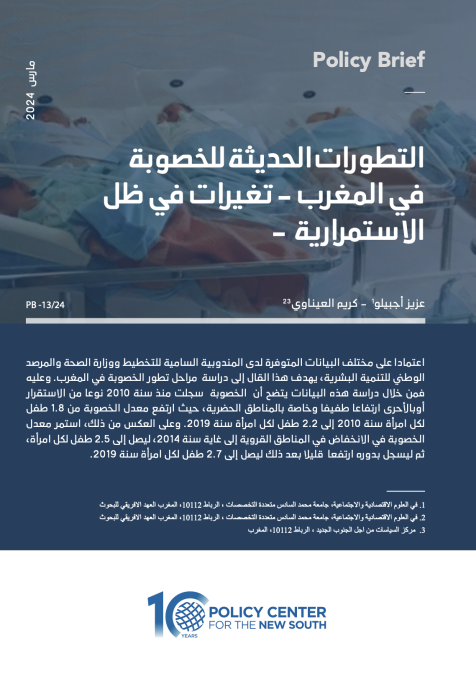Publications /
Opinion
Most of the Population Does Not Benefit
Until mid-2021, cruise ships moved with all their glitz and glamour into Venice’s Guidecca Canal, overshadowing the historic buildings, the foundations of which were destabilized with every wave, and threatening fisher boats and cappuccino lovers sitting beside the canal. Thousands of cruise passengers spilled onto the cobblestone roads, enjoying Gondola rides, glimpsing the Bridge of Sighs, exploring the fish markets near the Rialto bridge and the Canale Grande, visiting the historic Teatro La Fenice, or ordering a €22 Bellini cocktail at Harry’s Bar, made famous by American writer Ernest Hemingway.
Now, however, cruise ships have been barred from the canals. The Serenissima Repubblica di Venezia, as the commercial and naval power was known at its foundation in 697, consists of eight major islands united in a lagoon. It is struggling for survival—one of the most picturesque urban pearls of the planet is threatened with disappearance. Venice is not only endangered by ever-rising waters, known as ‘aqua alta’, but also by mass tourism. During the last season, 4.9 million tourists visited. About 51 000 citizens, herded into the historical center, are trying not to be suffocated. They—though not the hotel owners and restaurant chefs, luxury water-taxi operators or Gucci boutiques—are frustrated, angered, and alarmed. Rent is unaffordable, food prices are astronomical, the streets are overcrowded, the Bridge of Sighs is often as overrun as the Chatelet Metro stop in Paris during the rush hour.
Venice Can Only be Compared With Itself
Imagine you are a local. You are expected at a funeral at San Michele, which you can reach by waterbus, serving Murano Island. The waterbus is punctual yet overcrowded with backpackers. They enjoy their homemade sandwiches and drink tap water. Travelers from Slovenia, it seems, or Slovakia. They arrive by bus early morning, and stay a day, buy a postcard and delight in selfies. Fifteen minutes later, same story. Overcrowded. One chance to reach the funeral mass in time. A speedy water taxi costs €80 from San Marco, one way. For a local, whose priest will not wait with his closing funeral hymn, the impact of the foreign masses is a daily challenge. Venetians are rightly proud of their historical heritage. They do not tolerate any longer wine-filled foreigners, dressed in swimsuits, who are embracing sculptures made centuries ago, cut out of marble near Carrara, Tuscany. Their town is a national treasure, and not only preoccupied with tourists. Venice’s professional football just ascended to Serie A. Its 11 000-spectator stadium on the island of Sant Elena is primarily accessible by boat.
Venice is indeed a maritime miracle, attempting to survive without cars, trucks, or motorbikes, no exhaust fumes, no smoke, just waltzing boats, Rivas, Vaporetto, and the gondoliers, who are as proud as Spanish toreros. After all, three James Bond movies were filmed in Venice, including Casino Royale, adding to the myths floating in the air of the former mini empire, where the great German composer Richard Wagner died in a palazzo on the Canale Grande in 1883, and his equally famous countryman, Johann Wolfgang von Goethe, discovered in 1786 that the “Venetian was forced to become a new creature, and thus, Venice can only be compared with itself”.
Genuine Disneyland
Venice is a noble city, its heritage written in blood, gold, and silk. But even the far away India Times reported (May 23, 2024) that the city’s “delicate eco system is now at risk-due to the overwhelming number of visitors. This influx has resulted in pollution, the erosion of historic structures, and growing frustration among residents who are being priced out of their neighborhoods by the surge in vacation rentals due to the overwhelming number of visitors”. In response to these problems, travelers not booked into a hotel are now asked to pay a €5 entry fee online before being directed to access the town via one of seven entry points.Since August 2024, tour groups are restricted to 25 people and a professional tour guide is responsible for the visitors’ behavior. Soon the entry fee will be raised, since no tourist is shying away from paying €5 for the entry to a genuine Disneyland. Much needs to be changed in Venice to keep its future above water. Only the cappuccino price in the famous Caffe Florian, founded 1720 on the Piazza San Marco, remains stable at €11.50.
For decades tourism has been lauded for its role in facilitating and promoting cultural exchange, stimulating economies and promoting global understanding. Now, economic and environmental impulses are clashing, and cities, such as Amsterdam, are asking, noted Forbes (April 5, 2023) “certain tourists not to come”. Amsterdam is tired of its “sex, drugs and rock’n’roll image” and does not want to be “party central anymore”. Even the central passenger cruise terminal will eventually be relocated to the outskirts. The locals are tired of the masses, who scream and sing and puke. In Greece meanwhile, in the last week of July, half a dozen cruise ships anchored on the same day at the tiny Greek island of Santorini, dumping about 11 000 passengers onto the island, invading beaches, wineries, and monasteries, forcing the natives to retreat to their homes. Greece counted 33 million tourists in 2023, five million more than the previous year. 2024 will break new records and the spirits of those who do not profit from tourist invasions. Greece’s prime minister, Kyriakos Mitsotakis, admitted that the islanders “are clearly suffering”. And then the show goes on, foreigners storming the foreign grounds like infantry battalions on an imagined D-day.
Where the Money Goes
Spain registered more than 85.1 million tourists in 2023, but Sebastian Zenker, academic director of sustainable tourism and hospitality management at Copenhagen Business School, observed that, “if you look at the Canary Islands, I’ve read that a third of the population live on the edge of poverty. Tourism offers a big income to the islands—for whom? It is not enough to say that we want to welcome well-behaved tourists, who are quiet and spend more money. It’s about where the money goes. At the moment a larger proportion of the population does not benefit”. The influx of visitors, a kind of human avalanche, has sparked debates not only in Venice, Madrid or Amsterdam. France is expecting more than 100 million tourists in this Olympic year. Discussions about cultural heritage and the need for sustainable tourism management are part of government concerns worldwide.
Tourism as a Fairy Tale
Tourism was once understood as embracing foreign culture and traditions, as Britain’s Queen Victoria did, staying at the French Riviera at the Chalet des Rosiers on the hills of Menton, checking also into the Grand Hotel in Nice, where, later, an Excelsior Regina was built with the monarch’s needs in mind. La dolce vita for a selected few. Thus, the world may have been unprepared for mass tourism, driven by global low-cost airlines like Ryanair, which last year alone catapulted 181.8 million tourist onto pristine European beaches, historic towns such as Prague, or Royal Marrakesh. Faced with Instagram and TikTok videos of congested airports around the world, environmental catastrophes, such as the endless underwater plastic mountains in the Pacific between Hawaii and California, the largest accumulation of ocean plastic in the world, one could be inclined to envy travelers of earlier centuries. Goethe, for example, a national symbol in Germany of culture and intellectualism, traveled 18 months by boat and carriages through Italy, including Venice, preparing to write a book for future foreign travelers: ‘Italian Journey’, which was published in 1816 and is still a bestseller.
Goethe, who departed from his home, Weimar, in 1786, floated on the river Brenta from Padua to the lagoon of Venice, and wrote in one of his first letters, “all that surrounds me, is dignified, a grand venerable work of combined human energies, a noble monument, not of a ruler, but of a people”. But, eventually, the author suspected (Volume 12/letters from Italy/Part IV), Venice will “succumb to time, like everything that had a phenomenal existence”. Goethe did not predict the apocalypse, nor did he mention Armageddon, but feared for the survival of Venice, this “heaven-like republic”, which now is being slowly suffocated by the masses, whose ignorance provoked Goethe already 238 years ago to scream: “Gracious Heaven. What a poor, good sort of animal, man is after all”.










